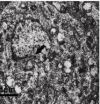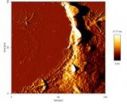(Press-News.org) Researchers from the University of Murcia have studied the changes in the brain that are associated with impulsiveness, a personality trait that causes difficulties in inhibiting a response in the face of a stimulus and leads to unplanned actions without considering the negative consequences. These patterns can serve as an indicator for predicting the risk of behavioural problems.
A new study headed by researchers from the University of Murcia analyses whether the connectivity of an infant's brain is related to children's impulsiveness.
"Impulsiveness is a risk factor for the development of serious behavioural problems," Luis J. Fuentes, the main author of the study, explains to SINC. "Among the children with a typical development, we can observe individual differences in their interaction with the environment."
In his opinion, the experts asked a group of parents to respond to a series of questions related to their children's impulsive behaviour.
With their responses, the 24 children in the sample were classified according to their levels of impulsive behaviour. Then, through neuroimaging techniques, the experts studied their patterns of brain connectivity. With this information, they analysed the patterns to see if they were related to the level of impulsiveness that the parents had noticed in their children.
"We can confirm that the greater the level of impulsiveness in the children, the greater the alteration in the connections between the posterior cingulate cortex and the right angular gyrus, which is also observed in people with antisocial behaviour; and other cerebral areas that are usually activated when performing given cognitive tasks," adds Fuentes.
For the authors, these results have two important implications. They affirm that "On the one hand, what the parents notice about their children's behaviour has a clear reflection in their cerebral connectivity patterns, and this is useful information for checking what is observed on a daily basis on a neuro-anatomical level."
Furthermore, alterations in the connectivity between areas of the brain that were previously related with antisocial behaviour have been identified in children with normal development.
"Said brain connectivity patterns can serve as biological indicators for predicting the risk of the appearance of behavioural problems and social adaptation difficulties," concludes Fuentes.
Impulsiveness and violence
Impulsiveness is a trait of the basic personality that causes difficulties in inhibiting a response in the face of a stimulus and leads to unplanned actions without considering the negative consequences.
For many years, experts have associated high levels of impulsiveness with behaviour problems. This impulsive behaviour is characteristic of children with attention deficit disorder and hyperactivity, but also of those which display antisocial personality traits that, in extreme cases, can lead to violent behaviour.
INFORMATION:
Reference:
Alberto Inuggi, Ernesto Sanz-Arigita, Carmen González-Salinas, Ana V. Valero-García, Jose M. García-Santos y Luis J. Fuentes. "Brain functional connectivity changes in children that differ in impulsivity temperamental trait". Frontiers in Behavioral Neuroscience mayo de 2014 volume 8 article 156.
Contact:
Luis J. Fuentes
Facultad de Psicología, Universidad de Murcia
Email: lfuentes@um.es
Children's impulsive behaviour is related to their brain connectivity
2014-07-22
ELSE PRESS RELEASES FROM THIS DATE:
Rigid connections: Molecular basis of age-related memory loss explained
2014-07-22
From telephone numbers to foreign vocabulary, our brains hold a seemingly endless supply of information. However, as we are getting older, our ability to learn and remember new things declines. A team of scientists around Associate Prof Dr Antonio Del Sol Mesa from the Luxembourg Centre for Systems Biomedicine of the University of Luxembourg and Dr Ronald van Kesteren of the VU University Amsterdam have identified the molecular mechanisms of this cognitive decline using latest high-throughput proteomics and statistical methods. The results were published this week in the ...
New water balance calculation for the Dead Sea
2014-07-22
This news release is available in French.
Tel Aviv/Halle, Saale. The drinking water resources on the eastern, Jordanian side of the Dead Sea could decline severe as a result of climate change than those on the western, Israeli and Palestinian side. This is the conclusion reached by an international team of researchers that calculated the water flows around the Dead Sea. The natural replenishment rate of groundwater will reduce dramatically in the future if precipitation lowers as predicted, say the scientists, writing in the journal Science of the Total Environment. ...
Novel methods may help stem cells survive transplantation into damaged tissues
2014-07-22
New Rochelle, NY -- Stem cells offer much promise for treating damaged organs and tissues, but with current transplantation approaches stem cell survival is poor, limiting their effectiveness. New methods are being developed and tested to improve the survival and optimize their therapeutic function after transplantation, as described in a Review article in BioResearch Open Access, a peer-reviewed journal from Mary Ann Liebert, Inc., publishers. The article is available free on the BioResearch Open Access website.
In the article 'Preconditioning Stem Cells for In Vivo ...
Study compares cost-effectiveness of weight-loss programs and drugs
2014-07-22
DURHAM, N.C. – In a cost-effectiveness analysis of commercial diet programs and pills, the Weight Watchers program and the drug Qsymia showed the best value for the money. The Jenny Craig regimen generated the greatest weight loss, but was also the most expensive option tested, according to researchers at Duke-National University of Singapore (NUS) Graduate Medical School.
The findings, published in the June issue of the journal Obesity, provide important information on the health and weight-loss benefits per dollar spent as insurance carriers consider coverage for weight ...
The nostalgia effect: Do consumers spend more when thinking about the past?
2014-07-22
Say you are out clothes shopping and you spot something that brings you back to a special time from your childhood when you were surrounded by friends and family. Suddenly, you find yourself purchasing an expensive shirt that makes you feel like a kid again. According to a new study in the Journal of Consumer Research, we're more likely to spend money when we're feeling nostalgic.
"We wondered why nostalgia is so commonplace in marketing. One reason could be that feeling nostalgic weakens a person's desire for money. In other words, someone might be more likely to buy ...
Trying to get kids to eat healthier? Don't tell them veggies are good for them
2014-07-22
At some point, most kids will hear that drinking milk helps make their bones strong or that fish is food for the brain. But do these messages foster the idea that if something is good for us, it must surely taste bad? According to a new study in the Journal of Consumer Research, when children hear about the benefits of healthy food, they're less likely to eat it.
"We predicted that when food is presented to children as making them strong or as a tool to achieve a goal such as learning how to read or count, they would conclude the food is not as tasty and therefore consume ...
You deserve it! Are consumers more likely to buy unique products when made to feel special?
2014-07-22
Graduating from college is an important life event often attributed to being smart and working hard. Many people celebrate this milestone achievement by buying themselves an expensive gift or taking a dream vacation. A new study in the Journal of Consumer Research shows that consumers who attribute their successes to internal character traits rather than hard work are more likely to select unique products.
"We found that consumers who attribute feelings of pride to their unique character traits—rather than how hard they worked to accomplish something—are more likely to ...
HIF 1α viral vector inhibits hippocampal neuronal apoptosis: The future of gene therapy
2014-07-22
Hypoxia-inducible factor 1 (HIF-1) attenuates amyloid-beta protein neurotoxicity and decreases apoptosis induced by oxidative stress or hypoxia in cortical neurons. Prof. Xiqing Chai and co-workers from Hebei Chemical and Pharmaceutical College, China constructed a recombinant adeno-associated virus (rAAV) vector expressing the human HIF-1α gene (rAAV-HIF-1α) efficiently, and tested the assumption that rAAV-HIF-1α represses hippocampal neuronal apoptosis induced by amyloid-beta protein. Their results confirmed that rAAV-HIF-1α significantly reduces apoptosis ...
Acupuncture at the Taixi activates cerebral neurons in old patients with MCI
2014-07-22
Previous findings have demonstrated that acupuncture at the Taixi (KI3) acupoint in healthy youths can activate neurons in cognitive-related cerebral cortex. In a perspective article released in the Neural Regeneration Research (Vol. 9, No. 11, 2014), Dr. Shangjie Chen and co-workers at Baoan Hospital, Southern Medical University, China investigated whether acupuncture at this acupoint in elderly patients with mild cognitive impairment (MCI) can also activate neurons in these regions. Researchers revealed that under resting state and task-related functional magnetic resonance ...
X-ray irradiation at a certain dose alters the neuronal cytoskeleton and cytomechanics
2014-07-22
Cranial radiotherapy is one of the most important therapeutic methods for the treatment of various types of primary and metastatic brain tumors. Although conventional photon irradiation has significantly improved the treatment of cancer, the central nervous system is prone to damage after high-dose irradiation, resulting in severe delayed or progressive nervous tissue injury. The issues regarding brain radiation injury have been widely discussed, and recent investigations have emphasized changes in pathomorphology. However, the underlying mechanism remains in debate. Researchers ...




